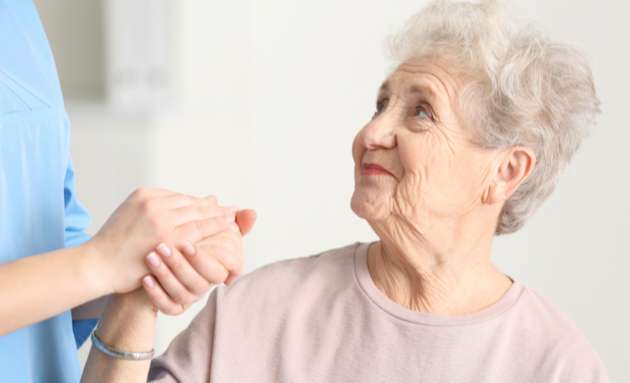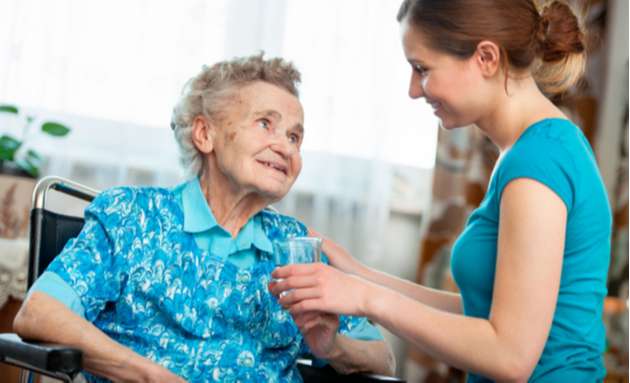How To Take Care Of Older Adults Suffering From Pneumonia And Flu

A common cold or flu caused by the influenza virus can compel a normal healthy person to report sick and rest for a couple of days or a week. In a person over 65 with a weakened immune system, flu can worsen existing health problems of diabetes, asthma, heart disease, or other inflammatory conditions, and lead to severe complications such as dehydration, infections of the ear or sinusitis, and of the lungs leading to bacterial or viral pneumonia.
In a lung infection or pneumonia, air sacs in the lungs (alveoli) fill up with pus or fluid, making it especially difficult for an older patient to breathe in enough oxygen to reach the bloodstream. At this stage, the symptoms of pneumonia may be mild and the condition is called, 'walking pneumonia', which is generally contagious if caused by a bacteria or virus.
Common Symptoms of The Flu

Symptoms of 'walking pneumonia' can get worse, however, and spread to both lungs which require the patient to be taken to a hospital by the caregiver for urgent medical attention. As a caregiver of an older patient, here are some of the symptoms that you need to watch out for.
- Flu Symptoms:
- High fever, runny or stuffy nose
- Headaches
- Fatigue and body ache
- Sore throat and dry cough
- Bacterial Pneumonia Symptoms:
- High fever accompanied by shaking, shivering or chills
- Chest pain and pain in the stomach
- Shortness of breath, sweating
- Coughing, bringing up thick yellow or green phlegm
- Viral Pneumonia Symptoms:
- Headaches
- Dry cough without any phlegm
- Dry cough with small amounts of clear or white phlegm (advanced viral pneumonia)
- Muscle pain and extreme exhaustion

How To Look After An Older Adult With the Flu
Illness at any age can be depressing and lonely, even more so among the elderly, because they are often battling a myriad of health conditions. As a caregiver, it is important to recognise this and make yourself available to look after your older relative and empathise with what they are going through.
It is also advisable to take some precautionary measures during this time. For example, remember to keep your hands clean and washed especially before and after tending to an elderly person with an illness, and, ensure that visitors don't have any cold or flu symptoms to avoid the risk of further complications.
While your doctor may prescribe antibiotics to fight the bacterial or viral pneumonia or flu infection, here are some other suggestions to help your loved one recover faster:
- If your elderly patient is a heavy smoker, discourage smoking as this can accelerate the symptoms into severe respiratory problems and interfere with medication.
- Give the patient lots of fluids like boiled and cooled or warm water, fruit juice, masoor dal (red lentil) or soup. This will relieve any sore throat or muscle aches, help loosen bodily secretions, allowing phlegm to be expelled easily. Soups will also help build immunity and strength.
- Help your loved one breathe better by propping their up in bed.
- Ensure that the patient gets adequate sleep and rest; don't allow them to do any household chores for a few days or weeks.
- Stay positive and calm. Remind your relative how much they are loved and valued, and provide reassurance that their will get better soon.
- Consult with a doctor about the right medications to battle fever or headaches.
Pneumonia patients generally take 10-15 days to recover. But elderly adults can take longer and up to six-eight weeks if they happen to suffer from additional health conditions. Stay alert if your older patient is not showing any signs of improvement and keep your doctor updated so medication can be altered if required.






